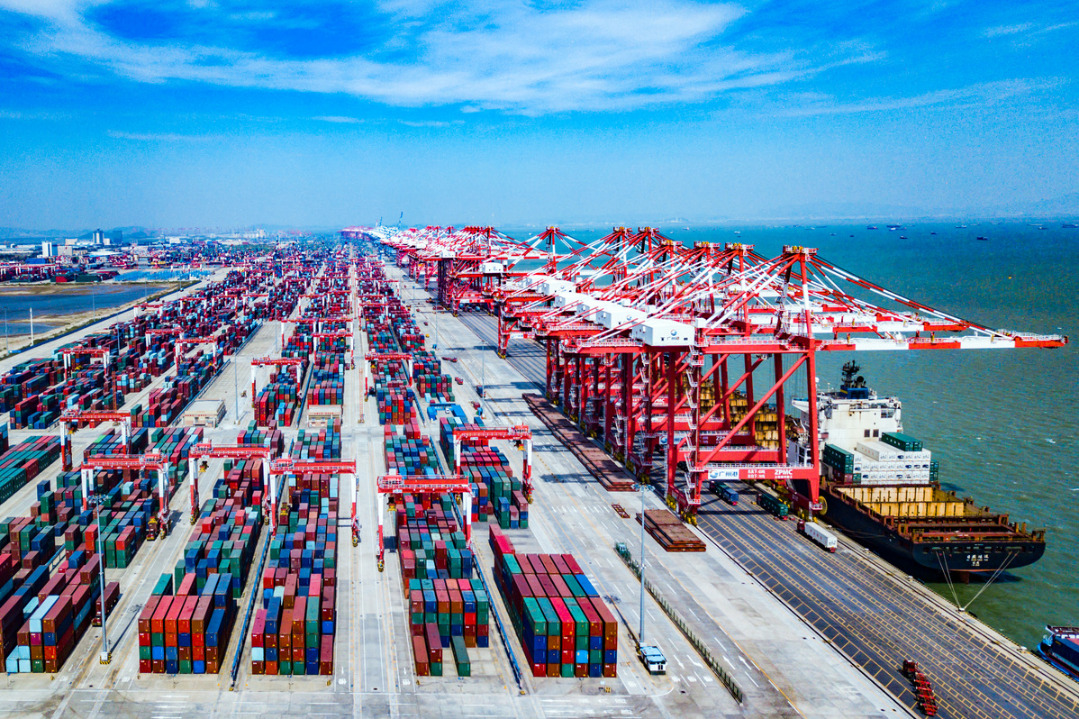Anxiety attacks


Plagued by fear and self-loathing, the West is trying to identify itself as a bright force in relation to dark others
Editor's note: The world has undergone many changes and shocks in recent years. Enhanced dialogue between scholars from China and overseas is needed to build mutual understanding on many problems the world faces. For this purpose, the China Watch Institute of China Daily and the National Institute for Global Strategy, Chinese Academy of Social Sciences, jointly present this special column: The Global Strategic Dialogue, in which experts from China and abroad will offer insightful views, analysis and fresh perspectives on long-term strategic issues of global importance.
The return of Donald Trump to the White House places the United States on a new geopolitical path. Although it is still too early to draw conclusions with certainty, it is likely that Trump's re-election will reinforce the trend of the US slipping into an irrational high strategy, which is based on the hidden but real foundations of geopolitical behavior derived from fundamentalist interpretations of Western Christianity, given that a large percentage of his voters come from the most religious sections of US society.
When commenting on the competition between the US and China, the notorious "Thucydides Trap", shifts in power balances and a range of other geopolitical factors are often mentioned, which are said to intensify competition between the West and China, leading us toward a perilous future.
However, there are some other factors contributing to the tension between the West and China, which are difficult to identify as they lie hidden within the geopolitical foundations of the West.
An underestimated factor that influences the geopolitical behavior of countries is the fundamental worldviews that originate from their cultural core. However, this is not perceived in the West because the fundamental worldviews that affect Western geopolitical behavior stem from Western Christianity, and since the era of modernity the West believes it has fully secularized and is no longer connected to its Christian foundations. This, however, is not the case. In reality, the fundamental Christian-derived worldview has passed almost unchanged into the Western culture of modernity, integrated within a superficially secular shell but nearly unchanged at the core.
Thus, Western geopolitical behavior is plagued by strong, albeit hidden, Manichaean, millenarian, deterministic and eschatological elements. These result in the Western tendency to seek out demonized geopolitical adversaries. These forces influence the behavior of the West irrationally.
As John Gray writes in his book Straw Dogs: Thoughts on Humans and Other Animals, the decline of Christianity in the West and the rise of humanism led to the replacement of God in the collective consciousness of people with faith in the capabilities of human beings themselves. In other words, the worldview of man-god was created, as described by Fyodor Dostoevsky in his book The Possessed.
Thus, faith emerged in the omnipotence of science, as an applied function of the powerful human mind, which would lead to the understanding and subsequently to the domination and control of the world.
So, modernity was marked by the self-deification of Western man. However, the optimism and self-admiration did not last long. Over the course of history, Western man has gradually realized that the foundational element of the informal religion of modernity, namely faith in the control of his own destiny, was an illusion. Two world wars and later the terror of the nuclear age dealt a devastating blow to Western man's belief that he can control his own destiny.
Moreover, man has ceased to be the measure of all things. Rather than believing that the world was created for them, people have begun to see themselves as invaders, and destroyers of some kind of "natural order".
In other words, postmodern Western man no longer believes he can control his fate, does not look forward to a bright future or a continuous path of improvement, and most importantly, no longer worships himself. In fact, he doesn't even like himself. He fears and hates himself.
However, because it is very painful and exhausting to hate oneself, Western man defines his existence positively as the opposite of a dark image.
This reality constitutes one of the foundations of the emerging international system, pushing toward the development of a new bipolarity, not only because this arises from "material" geopolitical causes, but also because it represents a psychological need for the West to define and tolerate itself. That is, the West is trying to acquire a new identity and a new mission by creating and demonizing a dark "other" or "others", against whom it can identify itself as a bright force. At the geopolitical level, one of these "others "today is China.
In conclusion, it seems that we are at the end of a long historical period. Christianity and ancient Greece offered Europeans the fundamental worldviews and self-perceptions that allowed them to dominate the world. Then, in the West, a self-deification of man was attempted, which ended in deadlock. Thus, the optimism of modernity has been replaced by postmodern pessimism, and human self-admiration has turned into self-hatred. However, this hatred cannot perpetually turn inward, so it seeks targets. This is expected to be a factor of significant importance on international affairs in the coming decades.
At this point, the role of Greece is potentially significant. More specifically, the Hellenic civilization is to a great extent the creator of European civilization. Thus, Greece, as a living carrier of the core of Western culture, can function as a factor of cooperation and creative dialogue with the Chinese civilization, by highlighting and promoting the cooperative elements of these two ancient cultures, and shape a new geo-cultural framework that will lead Europe and China into a mutually beneficial productive relationship, free from pathologies originating from hidden cultural factors.
The author is a professor of geopolitics and the director of the War Theory and Analysis Sector at the Hellenic Military Academy in Greece. The author contributed this article to China Watch, a think tank powered by China Daily. The views do not necessarily reflect those of China Daily.
Contact the editor at editor@chinawatch.cn.


































